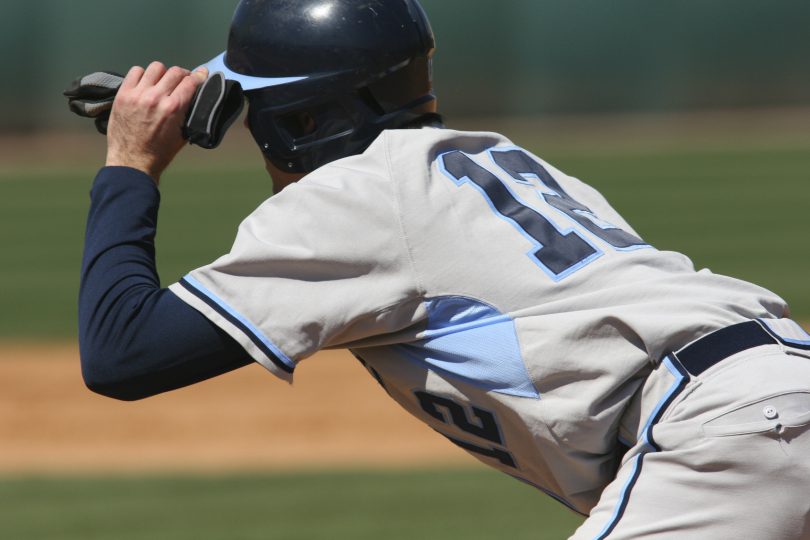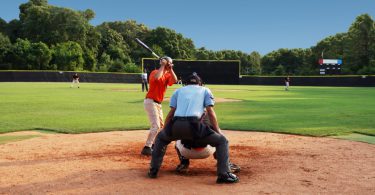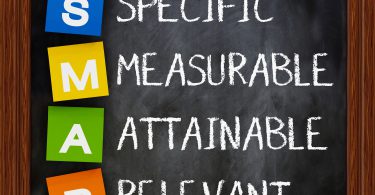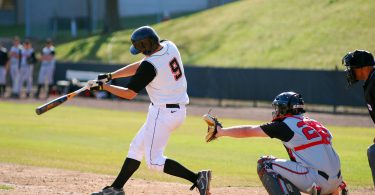Sophomore year marks a pivotal year for high school baseball players. By now, you should be thinking seriously about what kind of schools seem like the best fit for you. You should also start planning how you will contact coaches at schools that match your interests. There is plenty for you to do to kick off the recruiting process, most of which involve learning about the college baseball recruiting process and researching schools and college baseball.
Elite high school players begin to separate themselves from their peers as early as their sophomore year. Some players get called up to varsity as sophomores, while most will stay on the JV team. No matter where you will be playing this year, the most important thing you can do is develop a plan to improve your skills. There is no substitute for hard work, and you’ll need good working habits in the gym, on the playing field, and in the classroom, as we explain here.
While you can’t do much to change the physical size or limitations you were born with, you can control how hard you work. While size does matter in recruiting, it is talent and effort that best predict college baseball opportunities. Don’t believe us? Look at Jose Altuve, or read this.You can maximize your talents and increase your chances of being recruited for a college where you want to play with hard work and determination. You’ll be amazed by how much better you can be when you develop a plan then work as hard as you can towards reaching your goals.
We asked college players across the country questions about their recruiting and playing experiences. Here’s what they said about building your skills and getting better.
1. Set goals for yourself. Be realistic and follow SMART criteria. This means your goals should be Specific, Measureable, Attainable, Relevant, and Time Bound. Don’t set a goal to “get faster.” Set a goal like this: “In 8 weeks, I’ll improve my speed to first by 0.3 seconds.”
“I can’t control what other people do, so I make goals that will show how hard I have worked. Getting faster and stronger is always a priority. I will set strength goals and fitness goals and build a plan to reach them. Before the season starts, I can check to see if I reached them. Make use of the off-season to show coaches how hard you worked and that you are serious about becoming the best player you can. Outwork everyone.” –D3 Player, Midwest U.S.
2. Be organized and have a plan. Players don’t get good by accident; success is the product of hard work, organization, and creating a plan for success.
“It is a lot easier to progress when you’re thinking about the specifics. Obviously goals are good. You may think, I’m going to hit 3-something this year, but how are you going to do that? If you’re not going to be hitting homeruns, how are you going to work on base hits and bunts? Be that kind of guy. That’s how you progress and get better, when you focus on specifics, and that’s what will collectively make you a better player as a whole. Instead of thinking you should go out and practice everything, you have to be goal specific.” –D1 Infielder, CA.
3. Be confident in yourself and your abilities. Don’t be afraid to make aggressive mistakes. A consistent message from college players of all levels is that you will fail sometimes, and it is how you deal with failure that is most important. Show you can persevere and handle adversity. Confidence goes a long way in helping you stay positive when things go wrong.
“If I’m giving advice to a high school baseball player and he wants to play at the next level, whether it is D1, D2 or D3, I’d tell him ‘overdose on confidence.’ That doesn’t mean walk around like a pompous jerk or act like ‘I’m better than you.’ But if you don’t believe in yourself, no one else will. You have to believe in yourself first.” –D1 Infielder, CA.
4. Train and practice for the most difficult plays and situations. From JV to Varsity, the game speeds up. From high school varsity to college baseball, the game speeds up a lot. You can prepare yourself for these situations by watching college or professional games and by training yourself to make the most difficult plays and hit the most difficult pitching.
“Be able to think on your feet… In high school you could get away with not being the quickest on your feet, but in college, little mistakes are pretty costly. Get extra work in and take practice seriously. If you practice at a high speed, you will be alright. Don’t take practice off.” –D1 Outfielder, CA.







